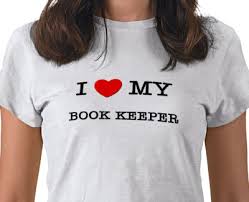What qualities are important in a good bookkeeper?
There are a good number of opinions when it is about choosing between a good and efficient Bookkeeper and doing it all on your own. Bookkeepers not only file your income tax returns but they also maintain your income records. You may employ a tax accountant or tax preparer to arrange your income tax return files but a missing record or incorrect data will end up in erroneous files and massive penalties by the government.
There are various ways to maintain business records. Some people prefer cloud storage services for safekeeping their data. Some people choose in-house bookkeeping services by hiring a bookkeeper to take care of bookkeeping digitally or by making use of conventional methods of organizing paper files.
There are a few basic characteristics that a good bookkeeper possesses. Furthermore, you can closely analyze the performance of a bookkeeper and mold it in accordance to your own business needs. If you are a business owner and you have decided to choose a bookkeeper for handling the financial accounts of your business, the following are the 8 essential characteristics present in a good and efficient bookkeeper:
Trustworthy and Competent:
Seeing that you are going to hand over all your business record matters to him, it is important for your bookkeeper to be trustworthy and competent. Bookkeepers do not have to hold CPA accreditation but they should have a degree in accounting & finance from a reputed university or institute. The professional competence of a bookkeeper can also be calculated by estimating their passion and interest in bookkeeping. As a ground reality, it is a boring job and people in this field for a few years might start losing interest. A job that is done without interest results in imperfection.
Good Communicator
Poor communication between the team manager and the bookkeeper may end up in chaos. It is extremely important for a bookkeeper to be a good communicator so that he not only establishes a free flow of information but also becomes a team player. Assessing the communication skills of a person is not that difficult. Apart from language, expression, and tone also closely look at and analyze the body language of that person.
Computer & Software Expert
Bookkeeping services are shifting from the paper files to a computer-based information system. There is a good number of small business accounting software programs that people use to keep business records. A good bookkeeper is not just an expert in software and computer but also willing to take on the advanced and modern technology. Even if you secure the records in paper libraries, there are pretty good chances to move them to computer-generated bookkeeping programs in the years to come.

Ability
If you ask someone to do your bookkeeping or your accounts you have to know they have the ability to do the work properly. A lot of business owners think anyone can do bookkeeping and pass the task on to their receptionist or an administrator. But the priority for those people is the part of the job they enjoy doing and if bookkeeping is not top of that list it won’t get done properly. An whilst someone can be trained to do the bookkeeping if they don’t know where to start it can all become a bit of a mess. I have even seen experienced bookkeepers get in a muddle when they have to start using new software or add in a new element to their bookkeeping.
A qualified bookkeeper will know the importance of consistency and accuracy when recording transactions, they will be able to manage the complexities of VAT and understand why and how to reconcile control accounts. Accounts have a structure and every transaction needs to be put in the correct place within that structure in order to produce accurate and meaningful accounts. A good bookkeeper will know this. We frequently find income recorded in expense codes and expenses in income codes and of course one of the effects of this is a lower turnover showing in your management reports – not so good if the bank manager needs to see them.
So you need to be sure that the person you have tasked with keeping your accounts has the ability to do all the things you need them to do. Don’t hand it over and then forget about it because as a business owner you are still responsible for the finances of your business and should know whether your bookkeeper is doing what needs to be done correctly.

Familiar with and uses new technology
While good bookkeeping is not inherently reliant on the use of modern technology, it is good to know that the bookkeeper you will choose is familiar and is currently using legitimate bookkeeping and accounting software packages. Not only can modern technology consolidate processes, but it also helps ensure the safety and security of your data through automatic backups. It is a great advantage to choose a bookkeeper who uses the latest bookkeeping programs and systems such as cloud integrators.
A good communicator
Most problems arise in business from the misunderstanding and miscommunication between two parties, so choose a bookkeeper with good communication skills. If they don’t understand something, they should be willing to ask you for clarification or help. Always remember that communication is critical, especially in the world of business, as it enables you to have a firm grasp of what’s taking place in your company without you having to see everything all the time.

Skills
Before anything else, your candidate needs to know the basics of bookkeeping, such as maintaining records of financial transactions, posting transactions, reconciling of accounts, etc., as these things would just be some of the things that your applicant would do in the event that he or she will be hired for the position.
On the other hand, some skills can be handy as well, like the following:
- Being a team player—Having the ability to work with other people is not a skill that flows in the veins of everybody else, sometimes it is learned. So, if you need someone who needs to communicate with people on a daily basis because you will put this person in a team, then it is important to consider that your bookkeeper should have no issues with people in general and has the capability of dealing with them, pinpointing the problem and creating a solution as a team.
- Having good organizational skills—A company always needs to be organized from one department to another, especially the financial side of the firm. Since they are handling an integral part of an organization, bookkeepers need to retain their focus on the tasks at hand so you will need someone who knows how to organize and is naturally organized with everything they do.
- Being aware how your business works—People who have this kind of understanding are believed to have good judgment when dealing with any situation in your business. Business savvy people are quick on their feet in deciding. Bookkeepers would need this in some areas of their job as they deal with their day-to-day activities.
- Possessing problem-solving skills—Bookkeepers can use this skill in times when they find out about any discrepancies in their financial records. They can simply think of ways to solve the issue that they encounter in order to make everything in the correct format or for the records to be fixed.
Problem-solving skills
Every organization needs problem solvers, not complainers. This couldn’t be truer in the financial world. Companies want bookkeepers who can not only spot issues, for instance, irregularities in the accounts or statements but is also able to figure out what caused the abnormality and offer appropriate solutions.
Additionally, bookkeepers need to be inquisitive by nature so that they have a pulse on things and are able to pre-empt issues and problems even before they crop up.
A thirst for learning
You may have already taken a bookkeeping course or thinking about one. Getting the right education is a great first step, however, the desire for continuous learning goes beyond that. It is the urge to stay on top of any changes in the industry as well as a passion for self-improvement. For example, you could learn a new accounting software.
A bookkeeper who keeps learning not only stays relevant but also becomes more valuable to their employer and clients. However, you don’t necessarily have to enroll only bookkeeping-related courses. You can also polish your skills in the areas of communication or problem solving for instance.

